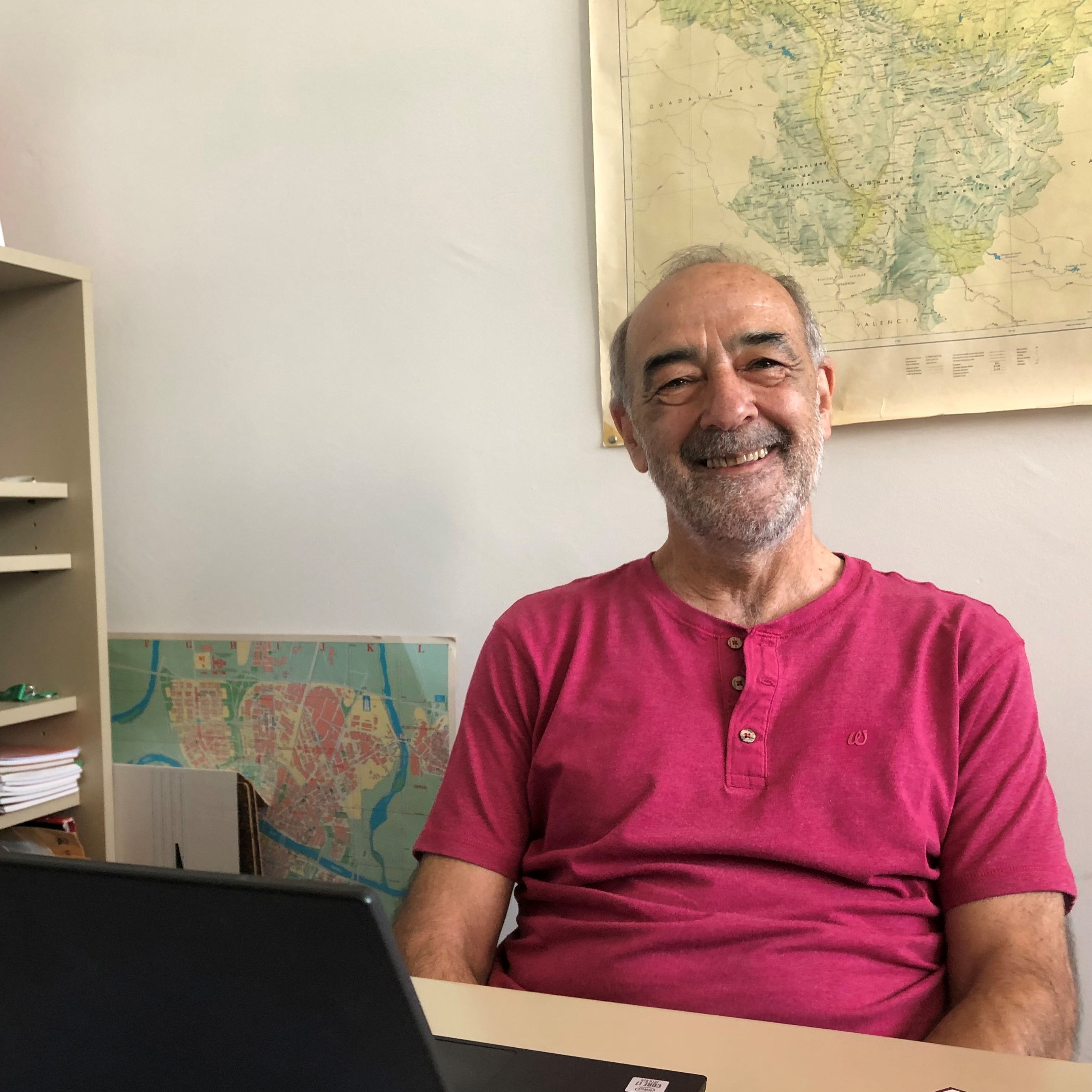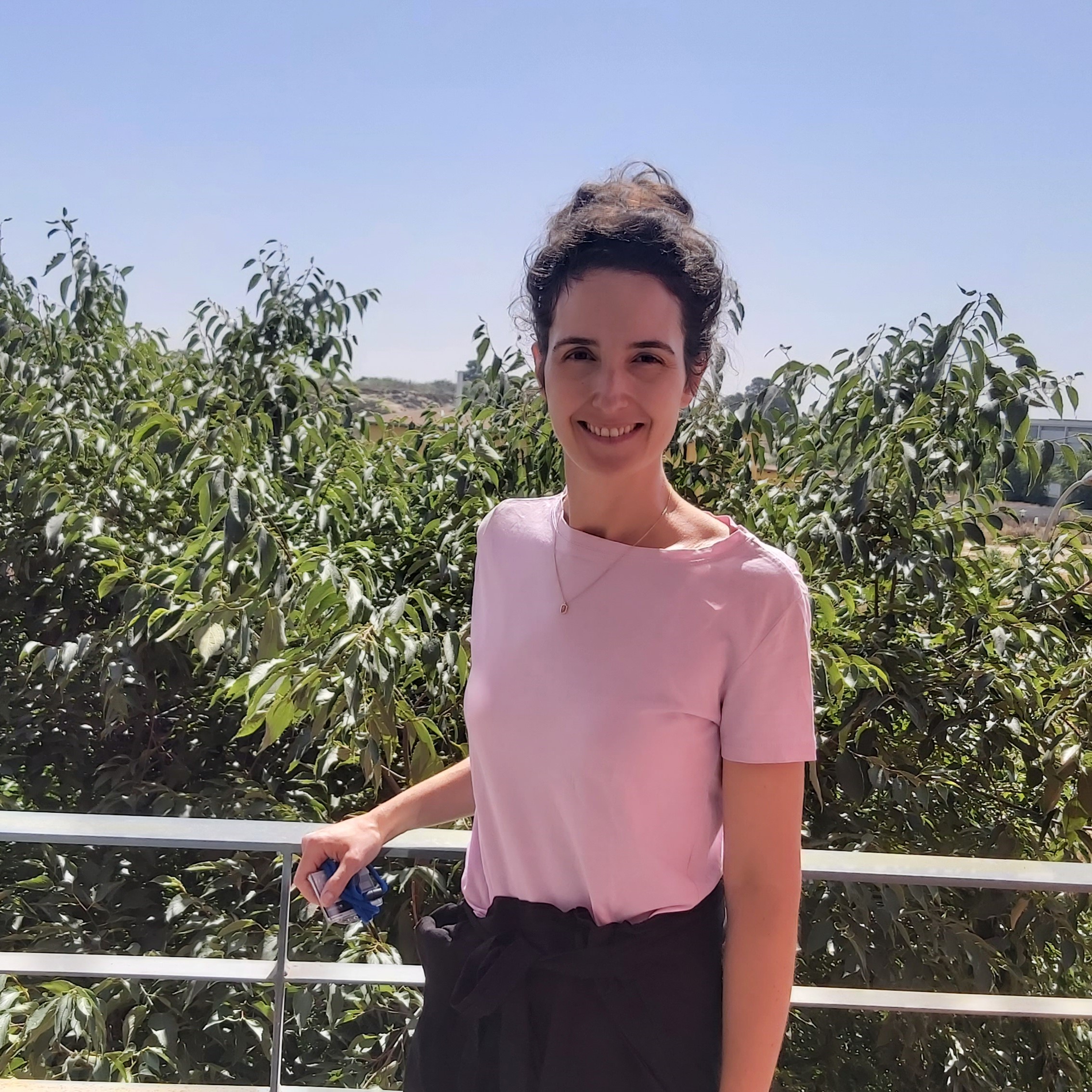
Why did you decide to go into research?
When I had just finished my degree, I was offered the chance to teach digital systems and assembler. Apparently it was necessary to "do a thesis". So, on the advice of a very young Mateo Valdés, I decided to take up research, on the advice of a very young Mateo Valero, the current director of the BSC. So I told the head of the department about my enormous desire to do research, without having any idea of what that meant. And I began to read, to experiment, to discover more or less new things, and to publish them... Until today.
What did you study?
Telecommunications Engineering at the Polytechnic University of Barcelona and later I started teaching on the Computer Engineering degree.
And how did you end up in Zaragoza?
Because of love. I'm from Barcelona, but my wife was from here, so either she came to Barcelona or I came. The situation for the recruitment of new midwives, which she was working on, was quite complicated in Barcelona and at the Center Politécnico Superior of Zaragoza the Telecommunications and Computer Science degrees were being prepared, as well as the postgraduate degree in Computer Science. It was a great opportunity for me, as teachers were needed for it, so I decided to come.
You are part of the GaZ group, what do you work on in your research group?
We work on the design of the circuits that give life to the processors, which in turn are the heart of mobile phones or computers, for example. We think about the best computational and memory options inside chips to run programmes effectively and efficiently.
In addition, we propose accelerators for very specific applications with the aim of making future devices faster, simpler and less power.
Any ongoing projects you would like to highlight.
We are currently waiting to be awarded a three-year project from the Ministry related to these processors and accelerators, and also to the memories inside the chip itself.
How long have you been linked to the I3A?
Since it was founded in 2002.
What would you highlight about the Institute?
The services provided by the I3A make everything much easier for us. In terms of computing, it's a fantastic platform and in terms of administrative services,also. Being able to get rid of most of the administrative procedures and expenses is a very positive thing. We should value this because the situation of other colleagues at other universities is not like this.
What do you like most about your profession and what do you like least?
I like both research and teaching. The research work I do in my group at the I3A, but also in the multidisciplinary group of Technologies in Hostile Environments at the University of Zaragoza. The latter's work is more related to field activity, to caves, and I love that.
The least... maybe I would like to teach less classes to have more time for research.
What would you say to someone who is thinking of going into research?
I would encourage them, of course, but it's true that it's a bit more difficult now than when I started because research used to be associated with being a teacher. So, at the same time as you were teaching, you were doing your thesis. Now, at the university we are very saturated with staff, we only take on as many people as retire, and the theses we supervise are different. We no longer tell them "come here to do research because later you can be a professor in the Spanish university"; now our PhDs have outlets all over the world, in places as powerful as NVIDIA, Intel or Google. So, it is very likely that these researchers will have to go abroad because there are few Spanish companies here. I always say that the playing field for researchers is the world.
What advice would you give to these researchers?
To look for a good management team, to be in tune, to be transparent and to tell everything that happens to them. For me, research is above all a human activity and the more interaction, trust and direction is very important to success. Of course I would also tell them to work hard, to be careful with details and to always ask why.
CLOSE UP...
A dream: To maintain the relationship with my researchers and to continue in my second research group.
An author: Jack Vance.
A film: Six Days, Seven Nights by Harrison Ford.
Hobbies: Gullies or high mountains.
Song: Depending on my mood I would say one or the other, today People Get Ready by Jeff Beck and Rod Stewart.
A trip: The one I took three years ago. I went alone to the Andes to an area of Argentina called Cordón del Plata, with many peaks over five thousand.
How would you define yourself: You define yourself by what you would like to be. So I would like to be a person who is a friend of his friends and who loves his environment to be happy.
